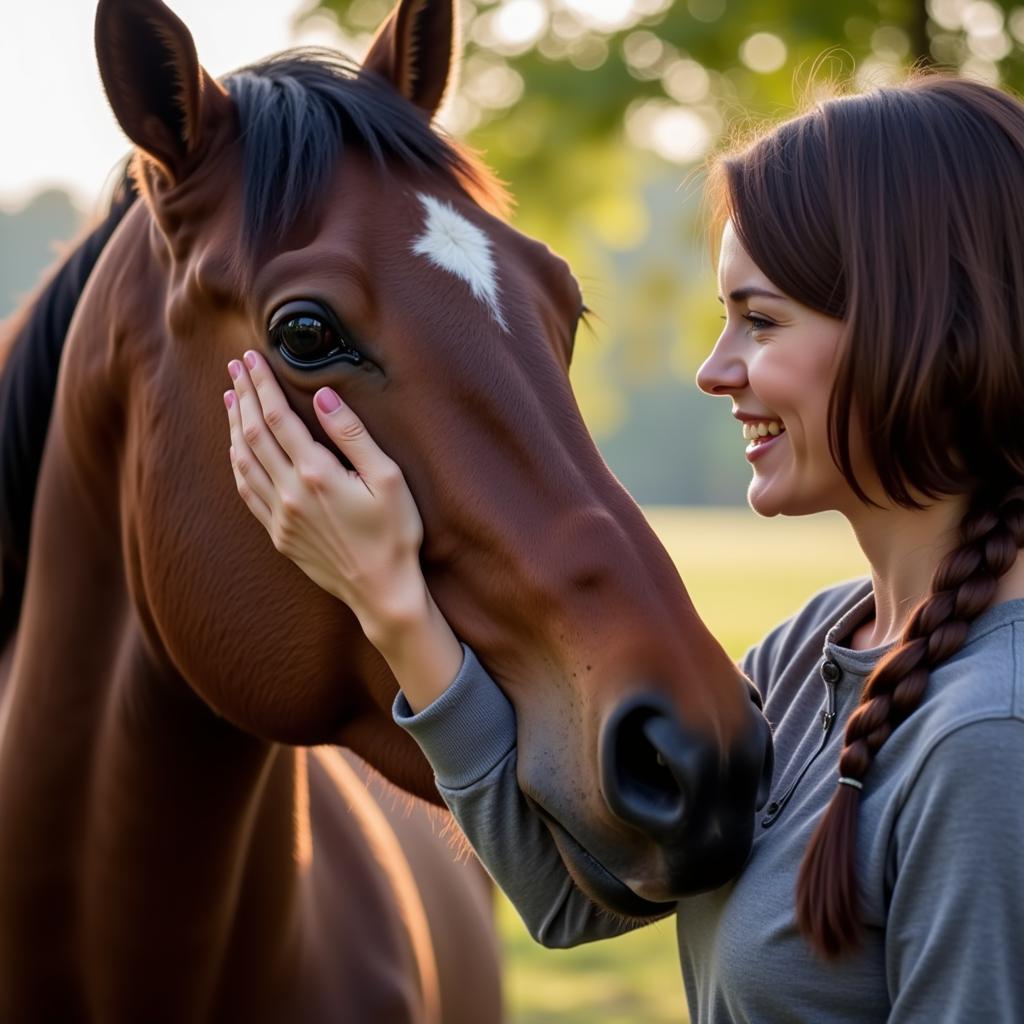The world of equestrian sports and animal care is constantly evolving, with new technologies emerging all the time. One such development that has sparked curiosity and debate is the concept of “Crazy Horse Ai.” But what exactly does this term mean, and what are its implications for horse owners, trainers, and enthusiasts? In this article, we’ll delve into the world of crazy horse AI, exploring its potential benefits, addressing common misconceptions, and separating fact from fiction.
Understanding the Hype: Can AI Really Understand a “Crazy” Horse?
The term “crazy horse” itself is subjective and often used loosely to describe horses exhibiting challenging behaviors. These behaviors can stem from a variety of factors, including:
- Past Trauma: Horses, like any prey animal, can develop behavioral issues as a result of negative experiences.
- Pain or Discomfort: Undetected physical ailments can manifest as behavioral problems.
- Lack of Training or Inconsistent Handling: Horses thrive on routine and clear communication.
- Breed Specific Traits: Certain breeds are known for their sensitivity or high energy levels.
While AI has made impressive strides in various fields, it’s crucial to understand that it’s not a magic solution for complex behavioral issues in horses. AI systems can analyze vast amounts of data, but they can’t fully grasp the nuanced emotions, instincts, and individual personalities that drive equine behavior.
 AI Analyzing Horse Behavior
AI Analyzing Horse Behavior
The Potential of AI in Equine Care and Training
While “crazy horse AI” might be a misnomer, AI does hold exciting possibilities for enhancing equine care and training in more realistic ways. Some promising applications include:
- Early Detection of Lameness: AI algorithms can analyze video footage of horses to detect subtle changes in gait that might indicate early signs of lameness.
- Personalized Training Programs: By tracking a horse’s progress and analyzing its learning patterns, AI could potentially help develop customized training plans that cater to individual needs and learning styles.
- Monitoring Horse Health: AI-powered sensors could continuously monitor vital signs, such as heart rate and respiratory rate, alerting owners and veterinarians to potential health issues.
Crazy Horse AI and the Importance of Human Expertise
It’s vital to remember that AI, at least in its current state, is a tool, not a replacement for experienced equine professionals. Horses are complex creatures, and addressing behavioral problems requires:
- A Holistic Approach: Understanding the root cause of the behavior, which often involves a combination of veterinary assessments, training adjustments, and environmental modifications.
- Patience and Empathy: Building trust and rapport takes time and a deep understanding of horse psychology.
- Clear Communication: Horses communicate primarily through body language, and humans need to learn to interpret and respond accordingly.
 Building Trust Through Connection
Building Trust Through Connection
The Future of AI and Horses: A Balanced Perspective
The idea of “crazy horse AI” might be more fiction than fact for now, but it highlights the growing intersection of technology and animal care. As AI continues to evolve, we can expect to see further advancements that could benefit horses and their human companions. However, it’s crucial to approach these developments with a balanced perspective, recognizing both the potential benefits and the limitations of AI in understanding and addressing the complexities of equine behavior.
FAQs
Q: Can AI cure my horse’s behavioral problems?
A: AI cannot “cure” behavioral problems. It’s crucial to consult with experienced equine professionals to address the underlying causes of the behavior.
Q: What are the ethical considerations of using AI in horse training?
A: Ethical considerations include ensuring the welfare of the horse, using AI responsibly, and not relying solely on technology at the expense of traditional training methods.
Q: Where can I learn more about responsible horse training methods?
A: For further information on responsible horse training methods, please refer to our articles on Crazy Horse’s Vision and the Crazy Horse Run.
Need Help with Your Horse?
At Justus Horses USA, we understand the unique bond between humans and horses. If you’re facing challenges with your horse’s behavior or training, don’t hesitate to reach out. Our team of experts is dedicated to providing compassionate and effective solutions for all your equine needs.
Contact us today at:
Phone: 0772127271
Email: [email protected]
Or visit us at:
QGM2+WX2, Vị Trung, Vị Thuỷ, Hậu Giang, Việt Nam.